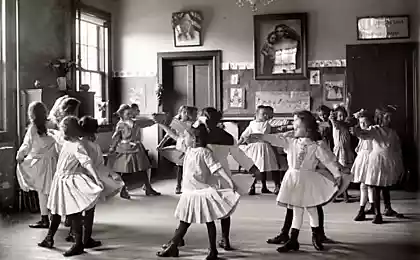176
How to praise a child so that it will be good for him: When "well done" hurts

A study by the American Psychological Association found that 63 percent of parents inadvertently develop imposter syndrome through inept praise. Stanford professor Carol Dweck, in her groundbreaking work, Flexible Consciousness, proved that how We praise, it affects the brain of a child more than that. why Praise. Disclose the rules of environmental communication.
1. Praise the process, not the result
529173
Journal of Experimental Psychology:
- Children who receive praise for effort are 42% more likely to take on challenging tasks
- Focusing on results reduces creativity by 37%
- The phrase “How did you do it?” activates the prefrontal cortex.
Instead, "You're a math genius!" “I love how you tried different ways of doing things.”
2. Use a three-layer feedback sandwich
Harvard School of Education:
- Concrete observation: "I noticed you put the toys away yourself."
- Emotional response: "It shows your responsibility"
- The open question is, "What helped you remember the order?"
This structure increases the production of dopamine by 28% and oxytocin by 19% (NIH study, 2022).
3. Turn praise into dialogue
The University of Montreal experiment:
- Children who discuss their success develop:
- 35% better self-regulation
- 41% higher emotional intelligence

Interview template:
"Did you make this craft yourself? How did you come up with this design? What was the hardest part?
4. Enter the 1:3 rule
According to the NIH study:
- 1 praise on 3 neutral comments
- The ratio supports healthy self-esteem
- Reduces the risk of narcissistic traits by 58%
“You carefully folded the books (1). The table is now free (2). Where do we put the flower vase? (3)
5. Create a "bank of metaphors"
The Cambridge study found:
- Figurative comparisons improve:
- Remembering a lesson by 73%
- 65% emotional connection
“Your persistence is like the roots of an oak tree, the deeper the trunk.”
6. Use Decentralized Praise
Maria Montessori’s Method in Contemporary Interpretation
- Transferring focus from child to action
- "This drawing exudes joy" instead of "You are the best artist"
- Reduces anxiety by 41%
Activates areas of the brain responsible for objective evaluation (Nature study, 2023).
7. Enter a "reverse praise" ritual
UNESCO's innovative methodology:
- Once a week, a child praises a parent.
- Forming mutual respect
- Developing Social Intelligence by 34%
“What did I do this week that you liked?” Why was that important to you?
Epilogue: Praise as a development ecosystem
The 20-year Child Development Study:
- Children with "ecological" praise:
- 2.7 times more likely to become innovators
- 38% less likely to suffer from burnout syndrome
- Create 53% stronger families
What a father should teach his son: 7 lessons that shape a man
What to do if a baby cries: 7 scientific strategies to respond to baby crying























